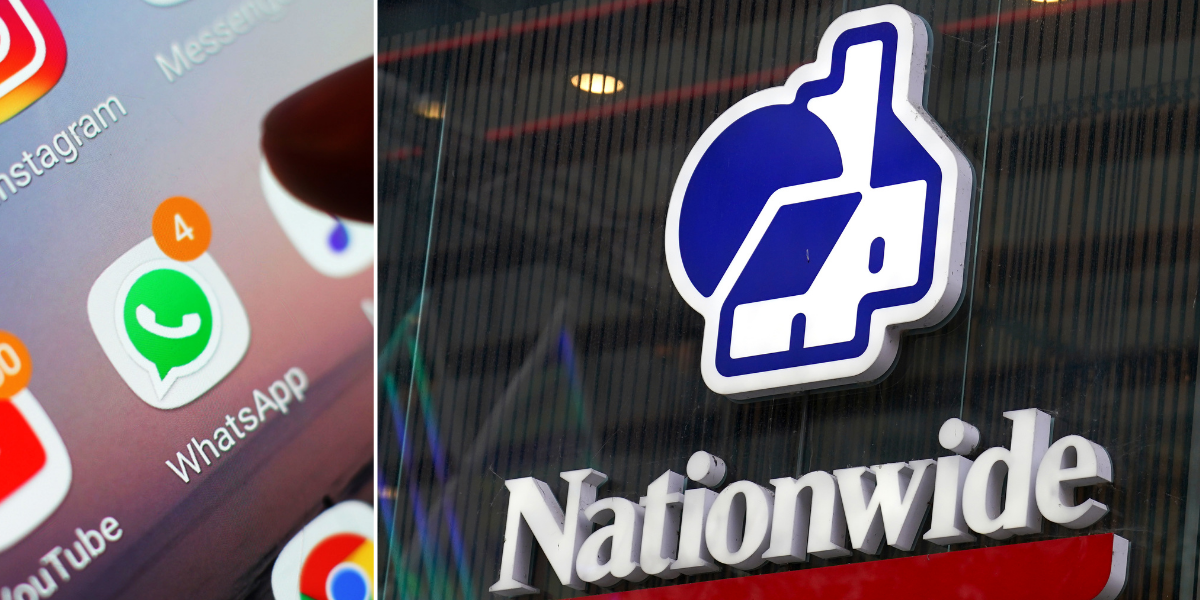A Nottinghamshire woman has lost £20,000 in an elaborate scam that began with a fake TV licensing email and escalated into a complex fraud involving WhatsApp screen sharing.
Felicity Campbell, from Bleasby, fell victim to the sophisticated con after initially responding to what appeared to be a legitimate TV licensing email by entering her credit card details.
The scammer then posed as her bank, Nationwide, and spent 90 minutes on the phone manipulating her into making multiple transfers.
Despite realising something was wrong and attempting to stop the fraud, Campbell was ultimately deceived into transferring thousands of pounds to Western Union accounts in India.
The scammer then posed as her bank, Nationwide, and spent 90 minutes on the phone manipulating her into making multiple transfers (Stock)
PA
Five days after Campbell cancelled her compromised credit card, she received a call from someone claiming to be from Nationwide Bank.
The caller asked if she had responded to a TV Licensing phishing email and raised concerns about a supposed £1,500 payment to Western Union.
Speaking on BBC Radio 4’s You And Yours programme, she said: “I said I had, and he said, ‘We’re a little bit concerned that your online account has been compromised.'”
After she questioned his authenticity, the fraudster built credibility by correctly stating her address and recent transactions.
The scammer then suggested continuing the conversation via WhatsApp, to which Campbell “reluctantly” agreed despite “feeling a little sick” about the situation.
Through WhatsApp, the fraudster instructed Campbell to share her screen, allowing him to see her other accounts with Lloyds and Wise.
LATEST DEVELOPMENTS:
Over a 90-minute phone call, the scammer directed her to move various sums between accounts and into a Western Union account.
Campbell said: “All the while he’s saying to me, ‘We are managing to recover the money, but we’ve got to act fast because it’s going out fast.”
She was led to believe the money was being recovered, not realising the fraudster was actually moving funds into her Wise account.
In a further escalation of the scam, the fraudster convinced Campbell to take out a £25,000 loan, claiming it would block another loan he said had been fraudulently issued.
She said: “If that one instruction had come in isolation, I would have said, ‘What planet do you think I live on?'”
Nationwide has refunded £6,000 to Campbell, while Lloyds returned £2,000 related to debit card transactions made under the fraudster’s instruction (Stock)
GETTY
When Campbell finally expressed her discomfort and wished to stop the process, the scammer allegedly said: “Go f**k yourself, madam.”
She said: “And I knew I’d been had – I felt so sick, I can’t tell you.”
The £20,000 taken from Campbell’s accounts was transferred to Western Union, which confirmed the payments were sent to named accounts in India, although she has since managed to recover some of the stolen funds through various refunds.
Nationwide has refunded £6,000 to the victim, while Lloyds returned £2,000 related to debit card transactions made under the fraudster’s instruction.
Wise, which had sent several warning messages to their customer about the suspicious payments, has refunded approximately £6,000, representing about half of the reported transactions through their service.











